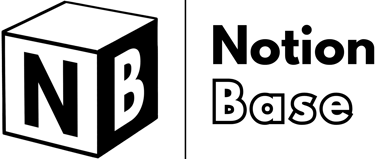NOTION SYSTEMS LAB — PRE-ORDERS END FEBRUARY 22 — 50% OFF BEFORE DOORS CLOSE
Notion vs Asana: Which Tool is Best for Your Workflow?
The Notion vs Asana debate revolves around flexibility vs structured project management. This guide compares their task organization, team collaboration, and workflow automation features to help you choose the best tool for your productivity needs.
4/26/20255 min read
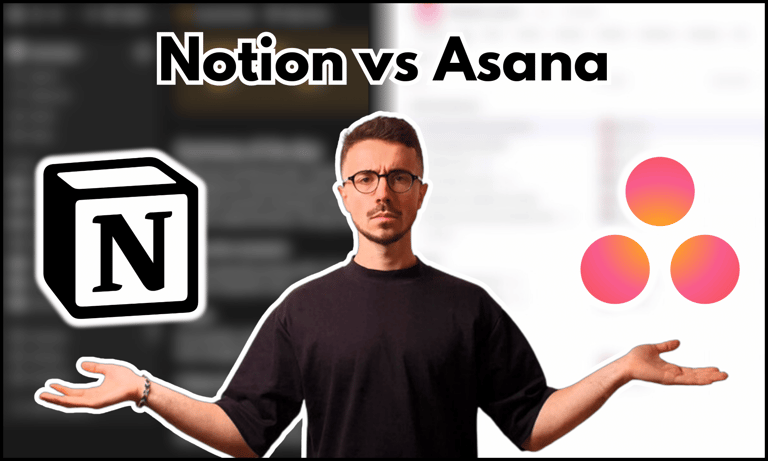

Notion vs Asana
Choosing the right productivity tool can be challenging, especially when comparing two powerful platforms like Notion and Asana.
If you're trying to decide between these two, understanding their differences in task management, collaboration, customization, and pricing will help you pick the best option for your needs.
This article breaks down the key differences in the Notion vs Asana debate to help you make an informed choice.
Table of Contents
Notion vs Asana: Core Differences
Notion is an all-in-one workspace designed for note-taking, knowledge management, and project organization. It provides a flexible, block-based system that allows users to build custom workflows, databases, and dashboards.
Asana, on the other hand, is a task and project management platform focused on team collaboration, tracking tasks, and managing deadlines. It offers structured workflows, automation, and integration with third-party tools.
Key Takeaways
Notion is best for users who need a customizable, knowledge-driven workspace.
Asana is ideal for structured task and project management with automation features.
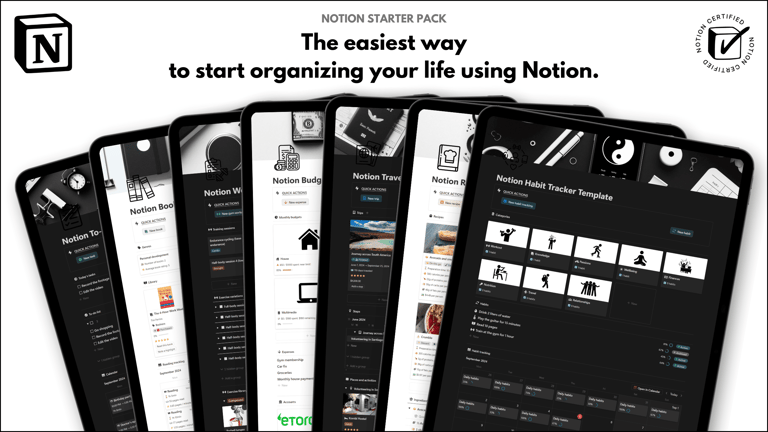

Save hours building from scratch!
Get instant access to 7 free Notion templates with the Notion Starter Pack.
Notion vs Asana: Task and Project Management Features
Notion’s Task Management
Notion offers a flexible approach to task management by allowing users to build custom workflows using databases, Kanban boards, and calendar views.
It integrates tasks seamlessly with notes, documents, and knowledge bases, making it a great choice for those who need an all-in-one workspace. However, it requires manual setup and lacks native automation.
In short:
Uses databases to track tasks, with customizable views like Kanban, Calendar, and Table.
No built-in task automation, but manual tracking and linked databases allow for workflow organization.
Flexible, but requires manual setup to function as a task manager.
Asana’s Task Management
Asana, designed specifically for task and project tracking, provides structured workflows, automated task assignments, and built-in dependencies.
It is more rigid but ensures a streamlined experience for managing projects with predefined sheets and automation tools.
In short:
Designed specifically for project and task tracking with built-in automation.
Provides features like due dates, priority levels, dependencies, and recurring tasks.
Has structured views like Kanban, List, Calendar, and Timeline.
Verdict: If you need structured task management with automation, Asana is the better choice. If you prefer a customizable system that integrates tasks with notes and databases, Notion is more versatile.
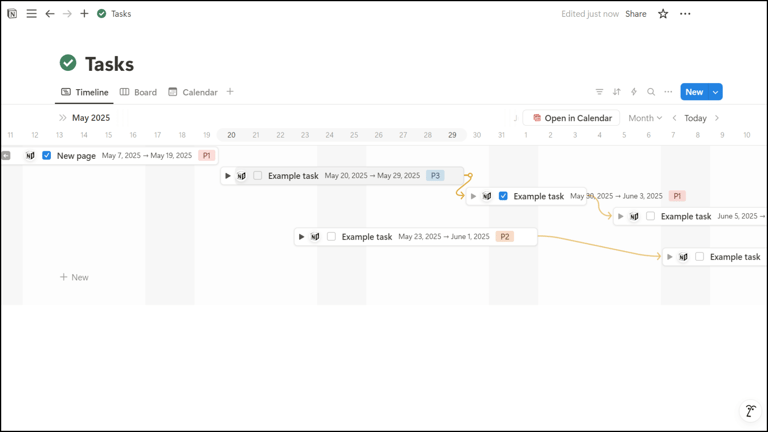

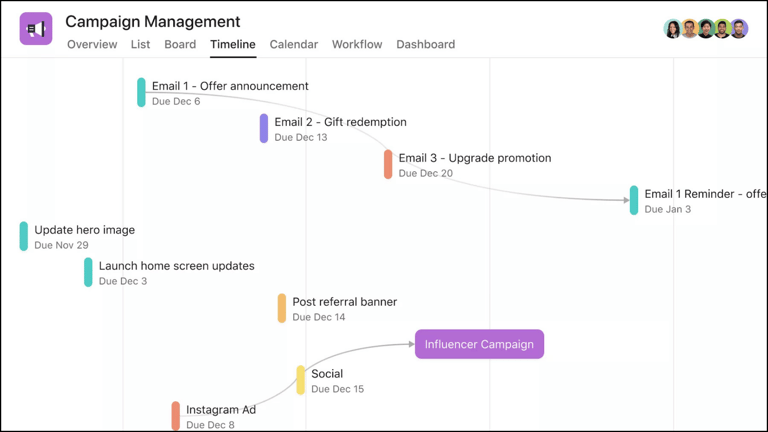

Notion vs Asana: Collaboration and Teamwork
Collaboration in Notion
Collaboration in Notion revolves around shared workspaces where teams can create and edit documents, databases, and project pages in real time.
Comments, mentions, and linked pages help streamline teamwork, making it particularly strong for knowledge management and flexible workflows.
In short:
Team members can edit shared pages in real-time.
Comments and mentions facilitate discussions.
Works well for knowledge sharing and document collaboration.
Verdict: If your focus is project execution and team productivity, Asana is better. If you need a collaborative knowledge hub, Notion is the stronger option.
Collaboration in Asana
Asana focuses more on structured teamwork with task assignments, due dates, and automated notifications.
It integrates with external tools like Slack and Google Drive, ensuring smooth communication and project tracking, but lacks the deep content collaboration features of Notion.
In short:
Task assignments, deadlines, and progress tracking enhance teamwork.
Allows for automation of repetitive tasks.
Strong integration with tools like Slack, Google Drive, and Zoom.

Learn more about Notion here.


Understand the difference between if and ifs formula in Notion in this guide.
Notion vs Asana: Customization and Flexibility
Notion’s Structure
Notion stands out for its ability to adapt to different workflows. Users can create custom dashboards, embed databases, and design unique project management systems that fit their specific needs. This flexibility allows for a truly personalized workspace but requires time to set up.
In short:
Uses a block-based system, allowing you to design pages and dashboards as needed.
Supports databases, templates, and embedded content.
No pre-set task structures; you build everything from scratch.
Asana’s Structure
Asana offers a more structured approach with project sheets and automated workflows. While it lacks deep customization, it provides an efficient system for teams that need a predefined structure rather than a highly adaptable workspace.
In short:
Pre-defined project and task templates streamline workflow setup.
Less flexible but offers automation and structured workflows.
Focuses on efficiency rather than deep customization.
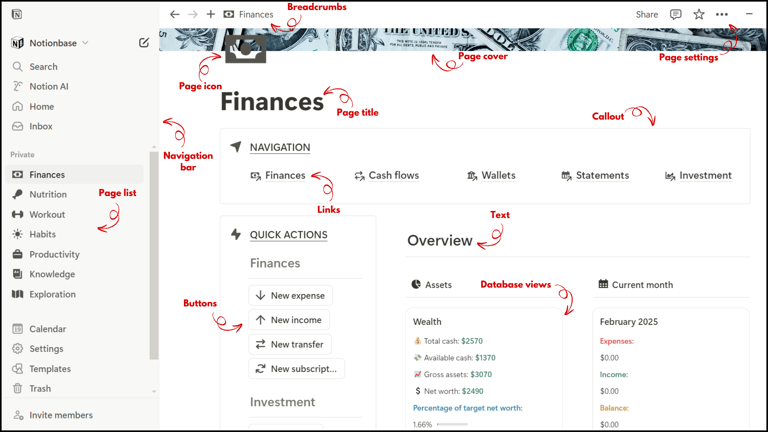

Verdict: If you prefer high customization, Notion is better. If you need a ready-to-use project management tool, Asana wins.
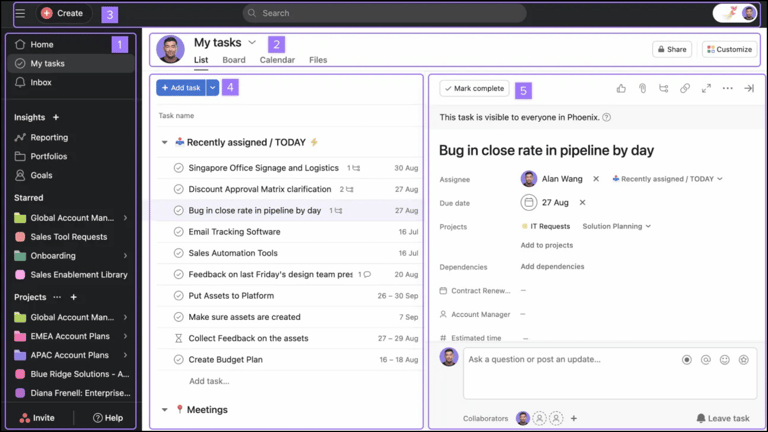

Notion vs Asana: Pricing and Value
Notion provides flexible pricing plans that adapt to different user needs. While the free plan is enough for most individuals, premium options offer enhanced collaboration and security.
Asana, on the other hand, structures its pricing more around team scalability, with advanced automation locked behind higher-tier plans.
Conclusion: Notion vs Asana
Notion and Asana serve different purposes, but Notion offers more versatility for those seeking an all-in-one workspace. Its advanced customization, seamless task integration with notes and databases, and user-friendly interface make it a strong choice for teams needing flexibility.
Asana is an excellent tool for teams focused on structured task management, with automation and project tracking features. However, for those seeking a platform that handles both project management and documentation, Notion provides a more comprehensive solution.
Ultimately, he choice between Notion vs Asana depends on your needs:
Choose Notion if you need a flexible, knowledge-driven workspace that integrates task management with databases and notes.
Choose Asana if you require structured task management, automation, and collaboration tools for team projects.
Unlock the ultimate roadmap to a life in order: simply enter your email adress below and a PDF copy will instantly be sent right to your inbox.
Download your free Notion ebook now!
Join The Movement
Follow Notionbase on social media to stay up to date with Notion... and more!
Links
Master Notion in 5 days.
© 2026 Notionbase. Website by William Coste.
Products
